The Housing Authority will host a series of public meetings starting Monday to solicit feedback on how it plans to carry out the voting process, in which NYCHA tenants will choose whether they want their development to take part in the Preservation Trust, which officials say will help raise desperately needed repair funds.
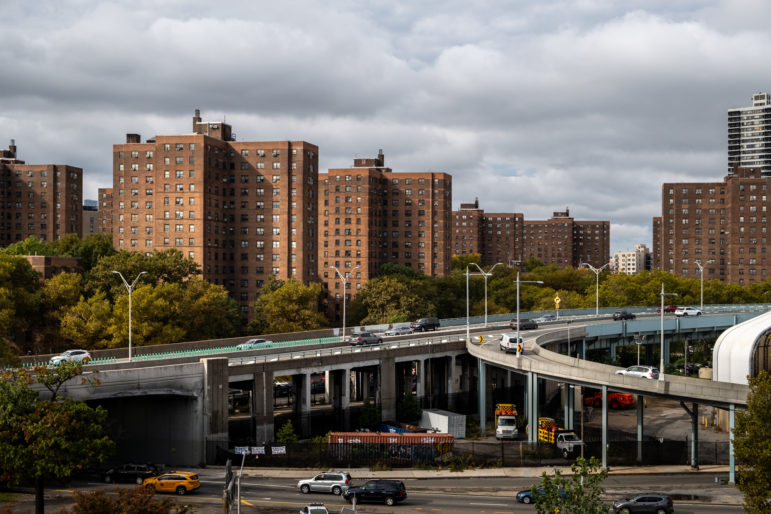
Adi Talwar
A view of NYCHA’s Wagner Houses in East Harlem from the Robert F. Kennedy Bridge.The New York City Housing Authority (NYCHA) is proposing a set of voting procedures through which public housing tenants will cast ballots on whether their development will take part in the Preservation Trust—what officials say will help NYCHA unlock desperately needed repair funds.
The Housing Authority will be collecting feedback on the draft voting rules at a series of public hearings starting Monday, and will finalize them by the end of the year, with actual voting expected to take place starting in early 2023. The opt-in process was mandated by state legislation passed in June approving creation of the Trust, a newly-formed public benefit corporation charged with financing and overseeing renovations at some 25,000 NYCHA apartments, should tenants vote to participate.
Developments that join the Trust will be transferred from the Section 9 federal housing program, NYCHA’s current funding mechanism, to Section 8, another federal rental subsidy that’s worth roughly double the value (NYCHA itself is not eligible for Section 8, which is why the Trust was established, officials said). The Trust can use that additional funding to issue bonds to borrow money for capital repairs, money NYCHA is in dire need of: There were more than 656,000 open work orders across the system in September, the most recent data shows.
Officials have put NYCHA’s current capital price tag at $40 billion, the result of decades of underfunding from federal, state and city governments that’s left the nation’s largest public housing authority in conditions that have been described as “uninhabitable.” The repair needs include more than $15 billion alone to address mold problems and another $6.5 billion for heating repairs. The Housing Authority would require an additional $9.5 billion to complete energy efficiency upgrades to comply with the city’s new buildings emissions standards, officials said.
"We have to trust The Trust," Mayor Eric Adams said on Twitter this spring, when the Trust legislation was up for a vote in Albany. Supporters have positioned the Trust as the only real option for drumming up money for public housing in lieu of a substantial federal investment that's unlikely to come. "NYCHA has been neglected for too long and a preservation trust is the best idea for getting residents the repairs, renovations and dignity they deserve. We can’t afford to kick their quality of life down the line any longer."
While many housing leaders and elected officials have signed onto the plan, some remain staunchly opposed, rejecting the idea that overhauling NYCHA's funding mechanism is the only solution. They argue instead for a direct, substantial government investment into public housing, saying it's only a matter of political will to do so.
"What we need is, we need the government on all three levels to fund public housing," said Marquis Jenkins, an organizer with Residents to Preserve Public Housing (RPPH), one of several advocacy groups that opposes the Trust plan. "We believe wholeheartedly that public housing works. It is a model that we should not only support, but it's a model that should be expanded here in New York and all across the country when we look at the housing crisis that exists now."
In addition to the Trust, more than 15,000 NYCHA apartments in recent years have been converted to Section 8 through another program called PACT, in which management and daily operations of developments are turned over to private companies. City officials say the change has helped fund $3.4 billion in repairs across the participating developments, but some PACT developments have also seen an increased number of evictions.
NYCHA says that the Trust will maintain all current tenants' protections, including rents capped at 30 percent and apartment succession rights, and stresses that developments run by the Trust would remain "100 percent public."
When the voting process begins next year, NYCHA has proposed three options for tenants to choose from on their ballots: To join the Trust and convert to Section 8, to convert through the PACT program instead, or to reject both options and remain in Section 9, what officials refer to as the "status quo."
Under the draft rules, voting would take place at just one development at a time, giving tenants three weeks to make their choice following at least three months of outreach and voter engagement efforts. Residents would be able to vote in person, online or through the mail.
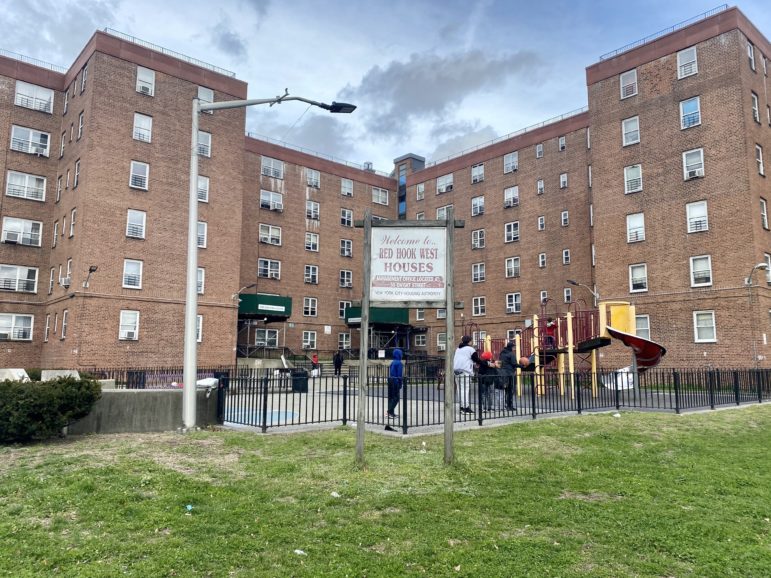
Sadef Ali Kully
The Red Hook Houses, the largest NYCHA development in Brooklyn.
“Residents will now have the ability to choose what is best for their communities and that was the selling point for me," NYCHA Citywide Council of Presidents Brooklyn South Member and Nostrand Houses Resident Association President Barbara McFadden said in a statement when the proposed voting rules were unveiled last week. "Personally, I can see the benefits in both the Trust and RAD/PACT, but now residents have the opportunity to choose."
NYCHA will be collecting public feedback on the proposed voting rules until Nov. 23. Jenkins said his group is pushing for changes: Under the draft regulations, only 10 percent of households in a given development would need to take part in the vote for the results to be considered binding, what critics say is a far too low of a participation rate. "The majority of residents should be making this decision and not just 10 percent," Jenkins said.
He is also pushing for NYCHA to provide tenants with a detailed needs assessment of their development before the vote, as well as an estimate for how much money the Trust would borrow to cover the development's repairs—a response to some tenants' fears about the amount of debt their complexes would take on under the new plan (NYCHA has countered this criticism, saying the proposed funding mechanism is a common way for government entities to raise money for capital improvements.)
NYCHA should hire an independent tenant advisor, Jenkins argues, to provide tenants with that kind of detailed information ahead of their vote so they can "make an informed decision on if this is the best tool for that development."
Public hearings on the proposed voting rules will take place over the next few weeks in each borough. Find the full schedule and more information here.


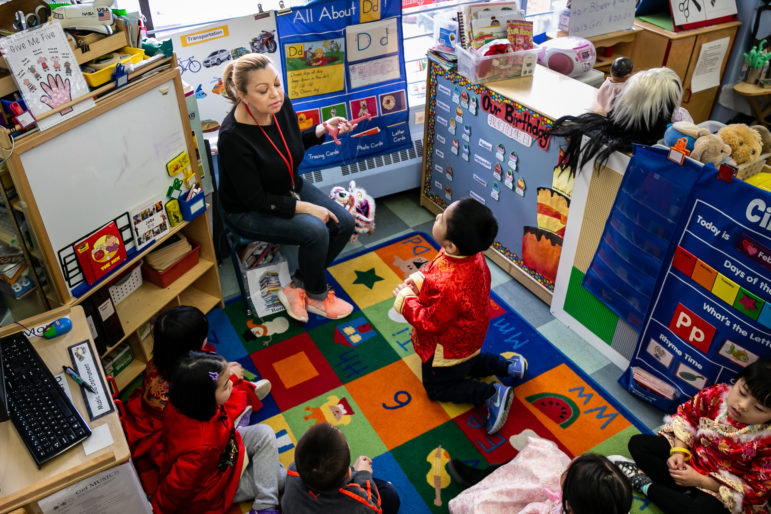
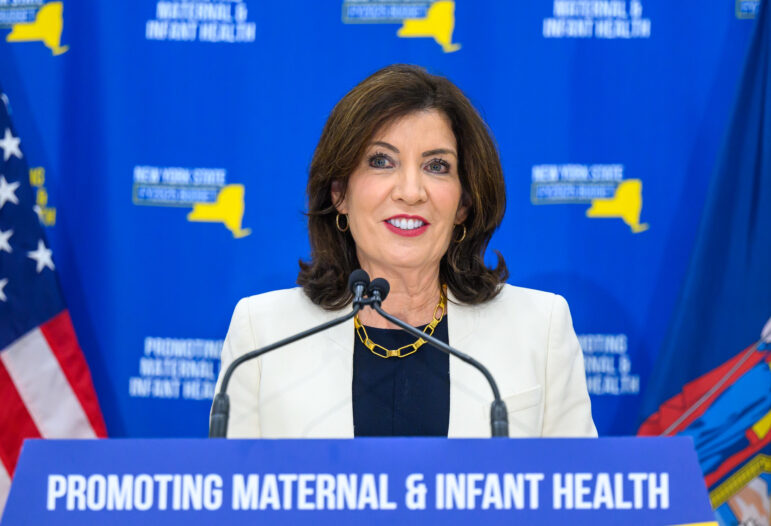
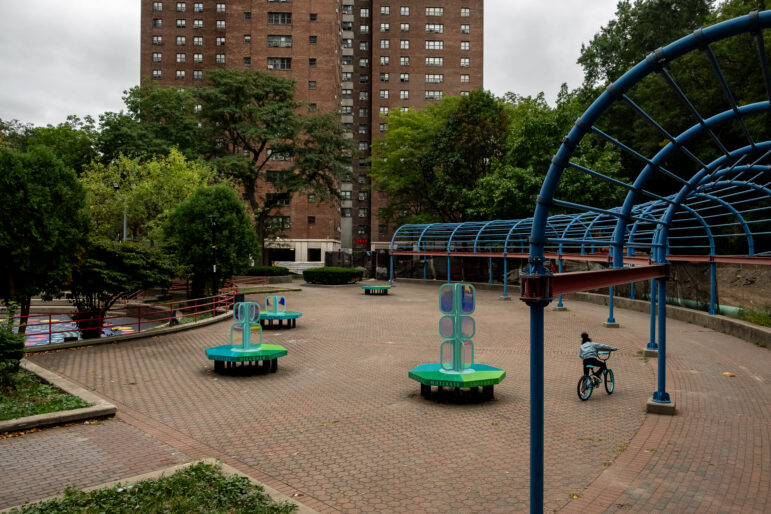



One thought on “NYCHA Proposes Voting Rules for Tenants to Opt Into ‘Preservation Trust’”
As a resident in public housing it’s a broken system and always be a broken system due to the fact this country does not put the American people first.